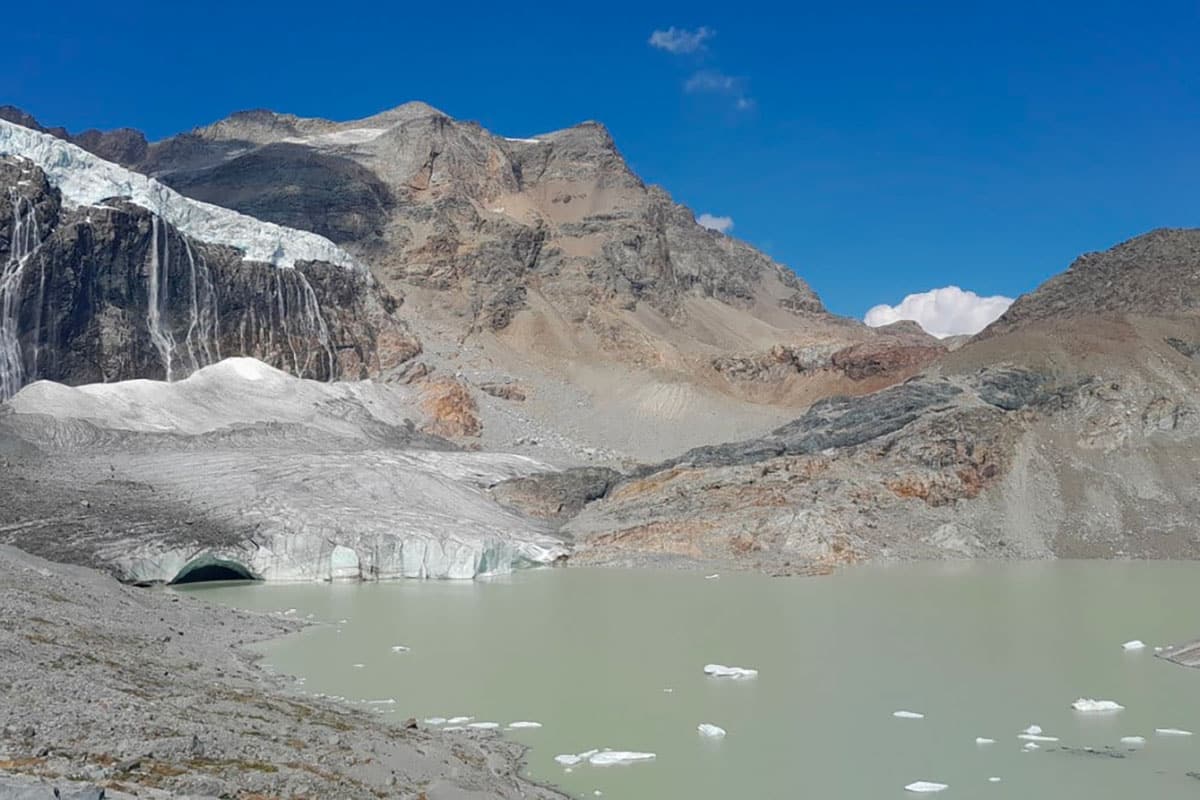The European Alps, Pyrenees, and Dolomites are home to some of the continent's most iconic glaciers. These frozen giants have shaped landscapes and cultures for millennia. However, their future hangs in the balance as climate change accelerates their retreat at an alarming rate. Scientists warn that without immediate action, these glacial wonders may vanish within decades, leaving behind a cascade of environmental and socioeconomic consequences.
Rapid retreat : European glaciers on the brink
Across Europe, glaciers are experiencing unprecedented melt rates. The Marmolada glacier, the largest in Italy's Dolomites, serves as a stark example of this crisis. Despite its impressive altitude of 3,343 meters, experts predict its complete disappearance by 2040. Each day, this majestic ice mass loses between 7 and 10 centimeters in depth.
The scale of glacier loss is staggering :
- In the past five years, Marmolada has lost an area equivalent to 98 football fields (70 hectares)
- Austrian glaciers in Salzburg could vanish within a decade
- One Austrian glacier has shed 45 million cubic meters of ice in just 25 years – half its total mass
- Alpine glaciers overall have lost 10% of their volume in a mere two years
This rapid decline is not limited to the Alps. The Pyrenees, straddling the border between France and Spain, face a similar fate. Spanish glaciers are projected to disappear entirely by 2050. Ernaut Izagirre, a geographer at the University of the Basque Country, offers a grim assessment : "This year, it may already be too late for the Pyrenean glaciers."
The far-reaching impact of vanishing ice
The disappearance of European glaciers will have profound consequences far beyond the mountain ranges they call home. These icy reservoirs play a crucial role in regulating regional water cycles and supporting diverse ecosystems. Their loss threatens to disrupt these delicate balances, leading to a cascade of environmental challenges :
Intensified heat waves and drought : Glaciers act as natural cooling systems. Their retreat exacerbates the urban heat island effect and contributes to more frequent and severe heat waves. This phenomenon is not unique to Europe, as evidenced by the unseasonal heat sweeping across the Southern Hemisphere, blurring the lines between seasons.
Rising sea levels : Melting glaciers contribute significantly to global sea level rise. This poses an existential threat to coastal communities and low-lying islands worldwide.
Increased flooding risk : Glacial melt can lead to the formation of unstable lakes, increasing the risk of catastrophic outburst floods in mountain valleys.
Water scarcity : Many rivers rely on glacial meltwater, especially during dry seasons. The loss of this crucial water source will impact agriculture, hydropower generation, and urban water supplies for millions of people.
Biodiversity loss : Unique alpine ecosystems adapted to the presence of glaciers face an uncertain future as their habitats rapidly transform.
A race against time : Mitigation and adaptation strategies
The impending loss of European glaciers underscores the urgent need for both global and local action. While completely halting glacier retreat may no longer be possible, strategies to slow the melt and adapt to a changing landscape are crucial :
- Aggressive emissions reduction : Rapidly decreasing greenhouse gas emissions remains the most effective way to slow glacier loss in the long term.
- Glacier protection measures : Some countries are experimenting with protective covers to shield smaller glaciers from summer heat.
- Water management : Developing robust water conservation and storage strategies to offset the loss of glacial meltwater.
- Ecosystem restoration : Investing in the restoration of high-altitude habitats to support biodiversity adapting to ice-free conditions.
- Disaster preparedness : Enhancing early warning systems and infrastructure to mitigate risks from glacial lake outburst floods.
The challenge of preserving European glaciers is intrinsically linked to the broader fight against climate change. As the brutal heatwaves with extreme temperatures set to fry the U.S. West demonstrate, the impacts of global warming are increasingly visible and urgent worldwide.
A call for global action
The plight of European glaciers serves as a stark reminder of the tangible impacts of climate change. Their rapid retreat is not just a loss of natural beauty, but a harbinger of profound environmental and societal challenges. The following table illustrates the projected timeline for glacier loss in key European regions :
| Region | Projected Year of Complete Glacier Loss |
|---|---|
| Spanish Pyrenees | 2050 |
| Italian Dolomites (Marmolada) | 2040 |
| Austrian Alps (Salzburg) | ~2034 |
These timelines underscore the urgency of the situation. The disappearance of glaciers within a human lifetime is an unprecedented phenomenon, highlighting the accelerated pace of climate change. Raquel Monton, a campaign manager at Greenpeace, emphasizes this point : "The impact is enormous. On a human timescale, we can see the retreat of glaciers. It's something not only unusual but surprising, as glaciers take thousands of years to form."
As we witness the transformation of Europe's mountainous landscapes, the message is clear : immediate and decisive action is needed to mitigate the worst effects of climate change and adapt to an increasingly ice-free future. The fate of European glaciers serves as a powerful call to action for policymakers, scientists, and citizens alike in the global fight against climate change.



